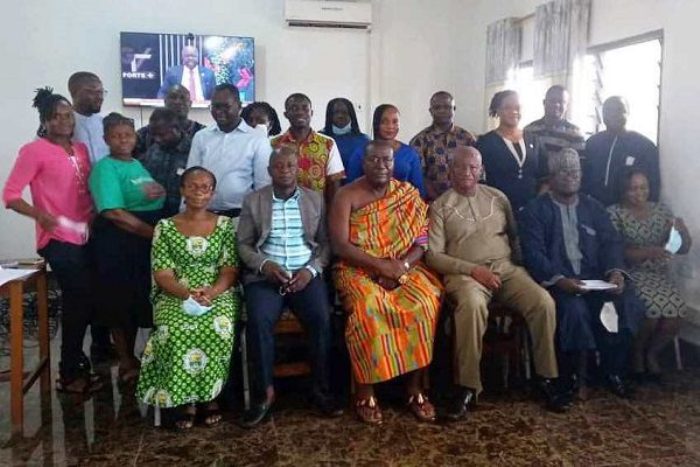
GHS stakeholders
By Hillary Thompson, Accra
311 women have died in 2019 from complications of abortion, accounting for 9.2% direct maternal deaths in Ghana.
Ghana Health Service (GHS) has therefore put in place pragmatic approach to strengthening the integration of Comprehensive Abortion Care (CAC) services into the routine reproductive health services in Ghana.
The move is to improve access to safe abortion services in order to reduce maternal mortality in Ghana.
Bono Regional Director of GHS, Dr Kofi Amo-Kordie, made this known at an engagement with the Regional Coordinating Team and other Stakeholders on CAC services in Bono region.
This, according to him, will improve access to sustainable quality of CAC services whilst contributing to the reduction of maternal mortality across the country in an effort to achieving the Sustainable Development Goal (SDG) 3 by 2030.
He stressed “institutionalizing comprehensive abortion care services as permitted by Ghana’s law at all levels including linkages with the private sector safe abortion service providers is the way to go if we want to save lives of many women”.
The Bono Regional Director of GHS said maternal mortality has over the past two decades been declining though progress has remained too slow to achieve targeted reductions.
“Complications from unsafe abortions have contributed substantially to Ghana’s high maternal mortality and whether we like it or not, people will accidentally get pregnant and will abort it,” Dr Amo-Kordie stated.
The Bono Regional CAC Focal Person, Dr Anto said the Ministry of Health and Ghana Health Service have regularly convened NGOs, and other stakeholders to develop and update guidelines for preventing and managing unsafe abortions.
This, he noted, has facilitated the provision of a package of services called Comprehensive Abortion Care (CAC) to reduce unwanted pregnancy and abortion‐related maternal morbidity and mortality.
Dr. Anto said over the past two decades, progress to achieve the targeted reduction of maternal mortality has been at snail pace since many women in Ghana still seek illegal abortion, which vary widely in terms of safety.
He added maternal services are limited in rural communities across the country and many women in these areas have no access to family planning.
The Bono Regional Health Promotion Officer, Nana Ama Gyankomah Asirifi, said despite efforts by the Ministry of Health, Ghana Health Service and partners to expand CAC services, several factors impede use of these services.
The factors, she mentioned include stigmatization, poor knowledge of abortion’s legal status among the public and medical professionals, misperceptions about the safety of legal abortion and inadequate access to service.
The Bono Regional Health Promotion Officer added GHS will develop a system for routine down-stream training and knowledge sharing on the recording and reporting forms for CAC service provision at all levels.






